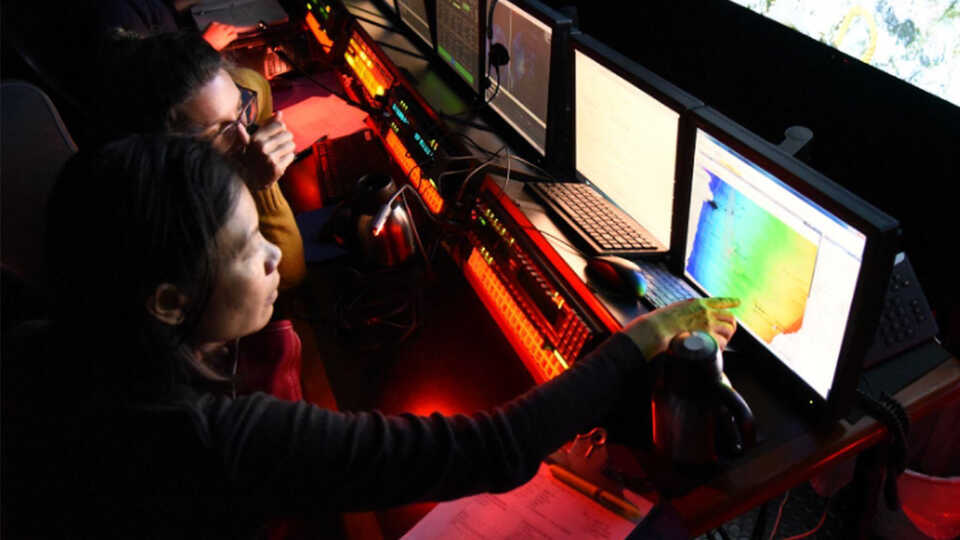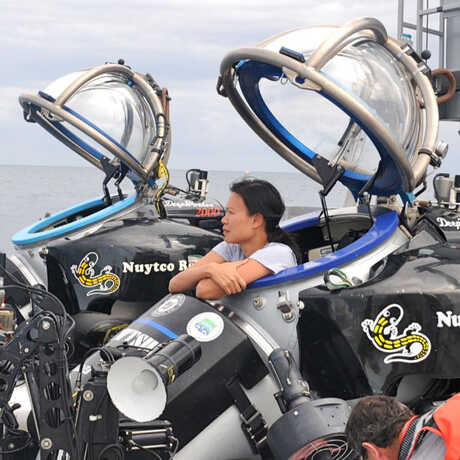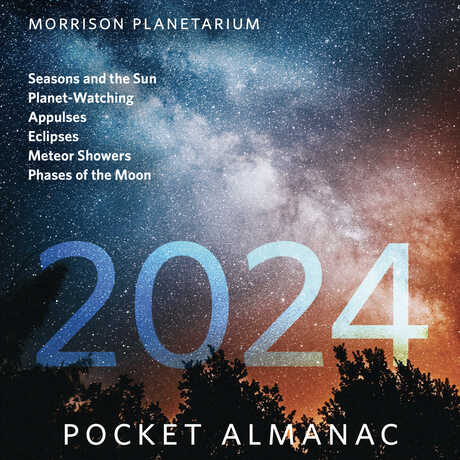Benjamin Dean Astronomy Lectures
Science, Exploration, and the Human Experience

Darlene Lim is Science Operations Lead for the VIPER mission, which will search for water ice at the lunar south pole in 2023.
Science, Exploration, and the Human Experience
Monday, October 3, 2022
7:30 pm
Morrison Planetarium
Featuring Dr. Darlene S. Lim (NASA/Ames Research Center)
NASA's VIPER lunar mission (Volatiles Investigating Polar Exploration Rover) is a mobile robot that will go to the South Pole of the Moon to get a close-up view of the location and concentration of water ice that could eventually be harvested to sustain human exploration on the Moon, Mars — and beyond. Managed out of NASA's Ames Research Center in Silicon Valley, VIPER represents the first resource mapping mission on another celestial body and presents a unique operational paradigm within the history of robotic spaceflight.
Dr. Lim is the Deputy Project Scientist and Science Operations Lead for VIPER. Her lecture will take audiences through the arc of her research over the past two decades culminating in her on-going work with the VIPER mission.
Seating is limited for this event and advance reservations are required. To order by phone, please call (877) 227-1831.
About Darlene S. Lim

Darlene Lim received her Ph.D. in Geology from the University of Toronto, Canada, and is a research scientist at NASA's Ames Research Center in California's Silicon Valley. Throughout her career, Darlene has led several NASA-funded programs that have been focused on blending field science research with the development of capabilities and concepts for future human-robotic spaceflight to the Moon and Mars.
Her research activities have taken her around the world, from pole to pole, land to sea, and to many lakes in between, where she has studied life in extreme environments, the way people conduct science, and how they need to be supported in their work of discovery and exploration.
At the center of each of these endeavors is the human - the person who must interact with others, with technology, and with the environment of interest, to apply the scientific method towards the accrual and expansion of knowledge about the planet that we live on and beyond. Darlene has been working with teams of scientists and engineers from a variety of disciplines to hone her understanding of the process by which their interactions and research needs can be supported and enabled under intense operational conditions such as those associated with Moon and Mars exploration.
Download Morrison Planetarium's 2024 Pocket Almanac to stay up-to-date on eclipses, meteor showers, satellite spottings, and more.
